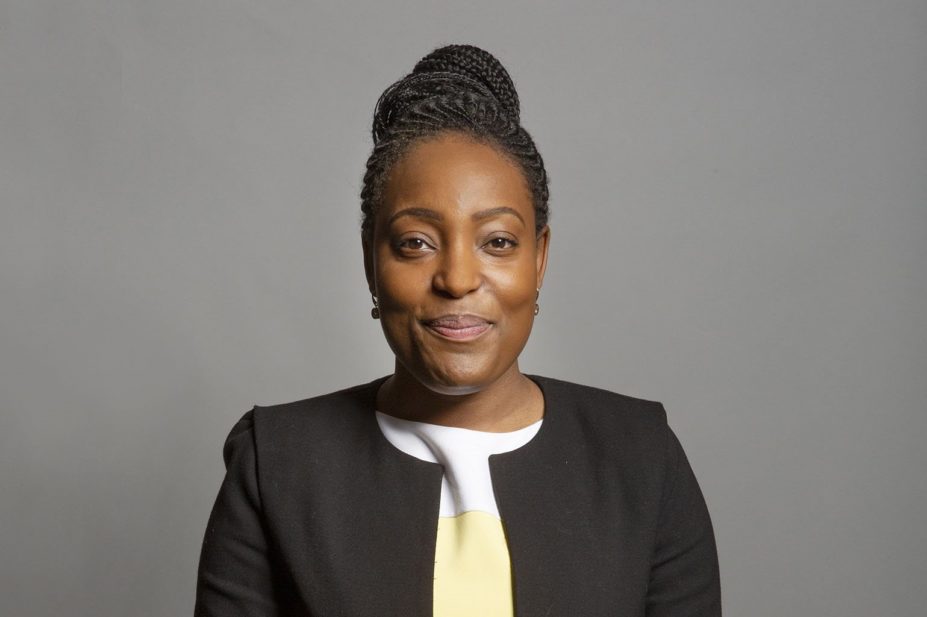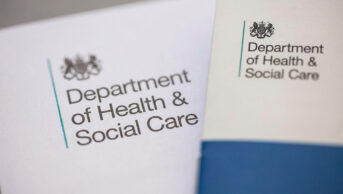
Source: Taiwo Owatemi
Pharmacist Taiwo Owatemi was elected as a Labour Party MP for Coventry North West in the December 2019 UK general election. However, Labour’s majority for the seat fell from 8,580 in the 2017 election, to just 208 in 2019 — the lowest it has ever been. She replaces Geoffrey Robinson who, having represented the consituency since 1976, stood down prior to the most recent election.
After graduating from Medway School of Pharmacy at the University of Kent and qualifying as a pharmacist, Owatemi worked for the NHS, in the role of senior oncology pharmacist at Dartford and Gravesham NHS Trust.
She has had a long-standing interest in politics and completed an internship with Conservative MP Oliver Letwin before attending university. She is also the past vice chair of the Young Fabian Health Network, a Labour think tank for people aged under 31 years.
The Pharmaceutical Journal caught up with Owatemi a few weeks into her role as one of 140 new MPs to sit in the House of Commons. Under the vast glass atrium of Portcullis House, she shared her views on medicines shortages; how her pharmacy background will influence her work; and the importance of building cross-party bridges.
How did you become interested in politics?
Growing up, my family always watched the news and I was well informed about what was going on. My interest in politics built over time, and as I became an adult, I started to realise how much politics affects our lives. A lot of important issues that happened in my life made me realise that it’s worth being involved and active to make a difference.
When I was in my second year of university, an incident happened in my local area that was quite upsetting. I remember coming home, and my mother telling me that I had two options: sit down and do nothing, or go out and make a difference. I reflected on what she said, and decided she was right. That’s what really motivated me to get involved in local politics.
Were your pharmacy colleagues supportive of you standing for election to Parliament?
I think a lot of people didn’t initially know about my political activities, because I’m introverted to a certain extent, and most of the stuff I did was after work. A lot of people only realised when the election was called. Reactions were mixed; I wouldn’t necessarily say they were that supportive.
Why do you think that was?
I think it was because many people didn’t see it coming. And I think it’s also to do with staffing levels … that’s always been a problem in hospitals. The trust was going through a lot of reorganisation within the department, so there was some uncertainty over whether I was coming back. And my speciality is quite hard to recruit for.
As a cancer pharmacist I was always quite angry about access to medicines
Did anyone encourage you to represent them?
Close friends did, yes. They said: “Go ahead, you complain a lot!”. As a cancer pharmacist I was always quite angry about access to medicines. Also, each trust has its own policies around how we manage medicine and sometimes I would think: “Is this in the best interest of everyone — clinicians, patients, and other healthcare professionals?”
A lot of my friends said that the best way to support those concerns would be for me to be that voice; to get involved.
How do you think a pharmacy background will benefit you as an MP?
A lot of the people I’m surrounded by are “proper” politicians; that‘s their career, that’s what they studied. Whenever they talk about policy, it’s not from a practical point of view. I’m having a lot of discussions where I say: “That’s a nice policy on paper, but in reality that’s not implementable.”
As a healthcare professional I’m also concerned with how the public are being involved: how do they see it? I think a lot of policymakers sometimes remove themselves from the impact they have on communities. One of my biggest inputs is using my practical knowledge to say: “I don’t think that could work that way, even if the general idea is OK.”
How did you feel when you realised you had won the seat?
It was a weird night! I don’t think it’s fully sunk in yet. I’m becoming conscious of things that I’d not previously paid attention to.
What kind of things?
That people know where I live. Security. Safety is a big one that disturbs me: the realisation that you are susceptible to attack. But also, people being kind and doing things like opening doors for me; it’s not an idea that I’m used to.
How can you make a difference as an opposition MP?
I’ll be honest here: we haven’t got the numbers to be as strong an opposition as we would like. That’s just the reality of it. But as an opposition we have a moral obligation to the public to ensure that if we don’t agree with a policy, we do speak out and say to the government: this is not right.
By working with the Tories, to ensure the right policies are passed; building a relationship with colleagues in the Tory party, to be able to speak to them and have those frank conversations, about whether a policy is good for constituents and not making party politics a barrier.
I’ve also been looking at all-party parliamentary groups that I want to join, to build those relationships.
We need better guidelines on how to deal with shortages
As a hospital pharmacist, what’s been your experience of medicines shortages and as an MP how will you address this?
Like every pharmacist in the country, I’ve been frustrated by medicines shortages. And it’s hard for the general public. I can sense their frustration, because we’re frustrated, and I think we need better guidelines on how to deal with shortages.
I sometimes locum in a community pharmacy, and I think that many community patients don’t know that there is a medicines shortage. They will go to five different pharmacies looking for the same medication. Over the years the government has always been hiding from the fact that we have a real medicines shortage, and the public needs to be more aware. One of my campaigns will be around educating the public.
I’ve had people attack me for the lack of medicine — which I understand. Many community and hospital pharmacists share the same frustration that patients have.
Labour’s manifesto pledged to create a state-owned generic drugs manufacturer. Will the party keep pushing for this, despite their election loss?
Since we’re the opposition, there hasn’t been any conversation in terms of how we’re going to move forward [with that]. We are changing party leadership so it’s about whether the new leader decides to support that motion.
We need to fight to ensure that our services are the best for our patients
Personally, I was quite excited by the idea. It would allow us to control the prices of some core medicines, which I thought was quite positive, from an NHS savings point of view, but also for medicines access. One of the main reasons for drugs going out of stock is to do with the manufacturing of a drug, or just logistics in terms of bringing it into the country. Having our own manufacturer would mean that we would be able to regulate that closely, and foresee any stock issues.
So, I think it would have been quite positive in the long term.
What’s your message to pharmacists, of any political stripe?
I believe that as voters, we have an obligation to ourselves to be informed about policies that affect us. Many pharmacists that I speak to, and members of the general public, are not always aware of upcoming policies until they’re actually implemented.
I also think that as a profession we have to do more in standing up for ourselves, and being able to address the government whenever a policy is being made.
We need to be more unified in our voice, and more active in fighting for the profession. I would like to see the professional body the Royal Pharmaceutical Society as powerful as the British Medical Association. We do represent a large amount of people; we do speak to the public; we do make that impact … we need to fight to ensure that our services are the best for our patients.
Sometimes I feel that we’re quite withdrawn in our approach — we need to be more proactive in fighting for key issues that affect us.


